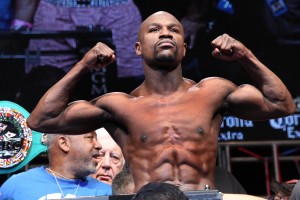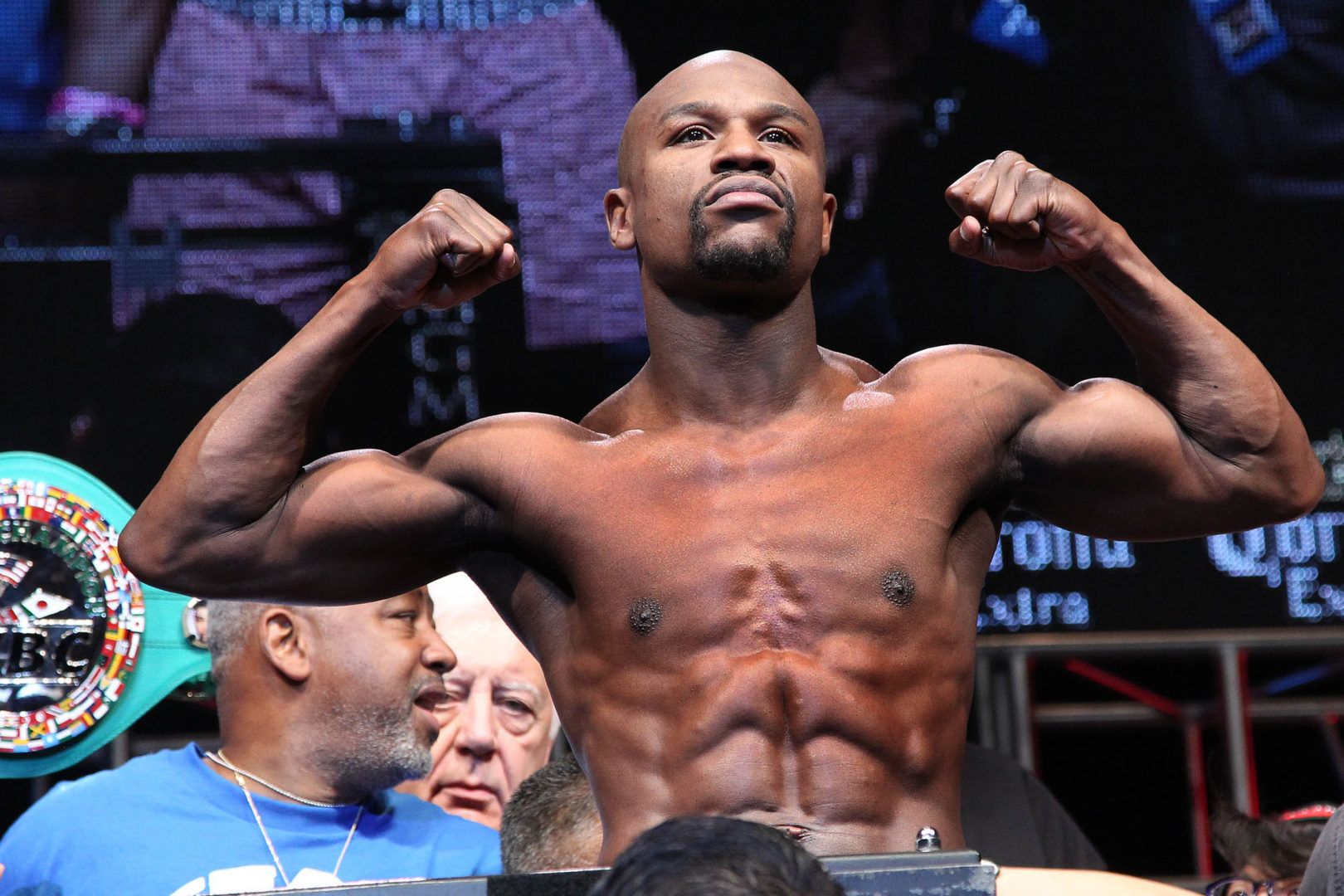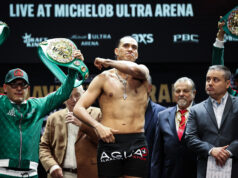By Norm Frauenheim

Floyd Mayweather Jr.’s top spot on the Forbes’ latest edition of the world’s highest-paid athletes is a counter to the tired argument from the know-nothing crowd that continues to say boxing is dead. It’s also an inconvenient truth for main-stream media. Newspaper editors will probably ignore it. They’re too busy pushing their own agenda, trying to bury the business while killing their own.
Mayweather’s $105 million over the last twelve months is 42 percent of the $250 million Jeff Bezos paid for The Washington Post last year. The newspaper game is a lot closer to its own obit than boxing has ever been.
I’m happy to use Mayweather’s top spot on the popular Forbes list in any argument with former newspaper colleagues who parrot the boxing-is-dead cliche. As a Phoenix resident in a city with a big Mexican-American population and historically a top-10 pay-per-view market, I run into fight fans, now former newspaper subscribers, who are so angry at the absence of coverage that they won’t even wrap a fish in local newsprint anymore. Scoring a point in a debate with no end in sight, however, isn’t exactly an endorsement of the business model represented by Mayweather, who is No. 1 on the magazine’s annual list for the second time in the last three years.
Mayweather’s wages — $1,458,333.33-a-minute for 24 rounds in decisions over Canelo Alvarez and Marcos Maidana — are the result of a Showtime deal that guarantees him most of the spoils. It’s not winner-take-all. Just almost all. Canelo, a Forbes newcomer at No. 66 with $21 million, walked away from his loss to Mayweather in September with $12 million. For him, it was a career-high and a reflection of his popularity in Mexico. But his purse was $61 million less than Mayweather’s final take, $73 million, for a bout that grossed a reported record of $200 million.
The difference was big enough to rank seventh on the Forbes list, just behind golfer Tiger Woods’ $61.2 million and tennis star Roger Federer’s $56.2 million. Couldn’t some of the difference have gone to emerging fighters on the undercard or in the gym? Bottom line, it’s about sustainability. If one fighter sweeps most of the chips off the table, I’m not sure it’s there.
Canelo wound up with about 16.4 percent of what Mayweather got. Canelo got plenty, enough to make him wealthy. Who wouldn’t line up for a chance at that kind of money? Dumb question. Mayweather, himself, says fighters lobby
for a shot at what he calls the “Mayweather sweepstakes.”
Maidana agreed to a guarantee of $1.5 million, also a career-high for the welterweight from Argentina. Mayweather’s minimum was $32 million. In negotiations, Maidana got about 4.7 percent of Mayweather’s payday. Try that one with a New York cabbie. Say, your fare is 20 bucks. Toss the driver a 94-cent gratuity and duck. That’s no sweepstakes. It’s a lousy tip.
Mayweather does it, because he can. That makes him a good businessman. But is it good for the business he dominates? That’s an altogether different question, which begs for an answer or least an investment that will ensure a future instead of another obit.










